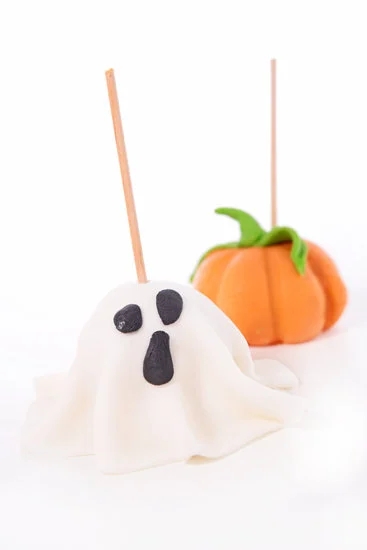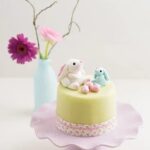Fake flowers have become increasingly popular in cake decoration, adding a touch of elegance and sophistication to any cake design. From weddings to birthdays, these faux blooms offer numerous advantages over their real counterparts. In this blog post, we will delve into the world of fake flowers and answer the question: what do you put on fake flowers before decorating a cake?
The rising trend of using fake flowers in cake decoration can be attributed to several reasons. Firstly, unlike real flowers, fake ones are not affected by temperature fluctuations or wilting, making them an excellent choice for cakes that need to withstand long hours at events. Additionally, fake flowers come in a wide variety of colors and styles, allowing decorators to achieve precisely the desired aesthetic without relying on seasonal or availability constraints.
When it comes to incorporating fake flowers into cake designs, proper preparation is essential. Not only does it ensure food safety and hygiene standards are met, but it also guarantees the secure attachment of the flowers onto the cake surface. By taking proper precautionary steps prior to decorating with fake flowers, bakers and decorators can create stunning cakes that not only look beautiful but also meet rigorous health standards.
The Importance of Prepping Fake Flowers
Fake flowers have become increasingly popular in cake decoration, offering a range of advantages over real flowers. However, before incorporating fake flowers into a cake design, it is crucial to understand the importance of prepping them. Prepping fake flowers not only ensures hygiene and food safety standards but also plays a significant role in securely attaching the flowers to the cake.
Maintaining Hygiene and Food Safety Standards
When it comes to cake decoration, maintaining hygiene and food safety standards is of utmost importance. Prepping fake flowers helps in ensuring that the flowers do not introduce any contaminants or harmful substances onto the cake. Fake flowers are often made using different materials like silk, plastic, or foam. These materials may carry dust, dirt, or chemical residues that should not come into contact with food.
To maintain hygiene, start by thoroughly cleaning the fake flowers before use. It is recommended to remove dust and dirt by gently brushing or even rinsing them under running water. Be cautious in handling delicate fake flowers as excessive force might damage them. Additionally, ensure the cleaning products used are specifically designed for use on fake flowers and safe for contact with food.
Securely Attaching Fake Flowers to the Cake
Prepping fake flowers also plays a role in ensuring that they are securely attached to the cake without risking any accidents. Fake flowers can add an exquisite touch to your cake design but selecting appropriate techniques for attachment is vital.
Before attaching fake flowers to your cake, consider using toothpicks or wires as support structures. Place these structures through the base of each flower and insert them securely into the cake at strategic points. This will help stabilize the flower arrangements and prevent them from falling off during transportation or display.
Another option for secure attachment is edible glue. Edible glues are specially formulated adhesives that are safe for consumption and hold well when applied between the faux stems and surfaces of cakes. Ensure that the glue is fully dry before handling or moving the cake to maintain the integrity of your floral design.
Choosing the Right Fake Flowers for Your Cake
When it comes to cake decoration, choosing the right fake flowers is essential for achieving a stunning and cohesive design. Not all fake flowers are created equal, so it’s important to consider factors such as color, size, and type when selecting the perfect blooms for your cake.
- Colors: When choosing fake flowers for your cake, consider the color palette of your overall design. Opt for flowers that complement or contrast with the colors used in your cake.
For example, if you have a pastel-colored cake, you might choose soft-colored flowers like baby’s breath or roses in light shades. On the other hand, if you have a vibrant and colorful cake, you could opt for bold and eye-catching flowers like sunflowers or orchids. - Sizes: Pay attention to the size of the fake flowers in relation to the size of your cake tiers. Larger cakes can accommodate bigger floral arrangements while smaller cakes might require more petite blooms. Make sure that the size of the flowers corresponds well with the proportions of your cake so that they don’t overwhelm or look out of place.
- Types: Different types of fake flowers can create different effects on a cake. Consider whether you want a romantic and delicate look with roses and peonies or a more whimsical touch with daisies or wildflowers. The choice of flower type will also depend on the occasion or theme of your cake. For example, tulips might be perfect for a spring-themed wedding cake while poinsettias are ideal for a festive holiday confection.
Remember that while fake flowers offer endless possibilities in terms of colors, sizes, and types, it’s important to ensure that they are made from food-safe materials before using them on edible creations like cakes.
By carefully selecting fake flowers that align with your desired aesthetic and theme, you can elevate your cake decoration to new heights and create an unforgettable centerpiece for any occasion.
Cleaning and Sanitizing Fake Flowers
Cleaning and sanitizing fake flowers is an essential step in preparing them for cake decoration. It not only ensures that the flowers are free from dirt and dust but also maintains hygiene and food safety standards. Cleaning fake flowers removes any chemical residues that may be present on the petals or stems, making them safe for use on a cake.
To clean fake flowers, there are several recommended steps to follow:
- Start by gently removing any loose dust or dirt from the petals using a soft brush.
- Fill a bowl with warm water and add a small amount of mild detergent or dish soap.
- Submerge the fake flowers into the soapy water and give them a gentle swirl.
- Use your hands to rub the petals and stems gently, paying close attention to any areas that may be particularly dirty.
- Rinse the flowers thoroughly under running water to remove all traces of soap.
After cleaning, it is important to sanitize the fake flowers before using them on a cake. Sanitizing helps eliminate any bacteria or germs that may be present on the flowers. Here’s how you can sanitize fake flowers:
- Prepare a solution of equal parts water and white vinegar in a bowl.
- Dip each flower into the vinegar solution, ensuring that all parts are covered. Let them soak for about 10-15 minutes.
- Remove the flowers from the solution and rinse thoroughly under cold running water.
Cleaning and sanitizing fake flowers not only ensures their cleanliness but also helps in prolonging their lifespan. Properly cleaned and sanitized fake flowers will be safe to use on cakes without compromising hygiene or food safety standards.
Remember, always follow proper cleaning and sanitizing procedures to ensure safe usage of fake flowers in cake decoration.
Techniques for Attaching Fake Flowers to the Cake
Methods for Securely Attaching Fake Flowers
When it comes to incorporating fake flowers into cake decoration, it’s important to ensure they are securely attached to the cake. There are several techniques you can use to achieve this, depending on your preference and the design of your cake.
One common method is using toothpicks or floral wire. For small or lightweight fake flowers, you can simply insert a toothpick into the base of the flower and push it into the cake. This provides stability and ensures that the flower stays in place. Alternatively, you can use floral wire by gently pushing it through the stem of the fake flower and inserting it into the cake.
Another option is using edible glue. Edible glue is specially formulated to adhere decorations on cakes. Apply a small amount of edible glue to the base of the fake flower and press it onto the desired spot on the cake. This method is particularly useful when you want to attach larger or heavier fake flowers as it provides a strong bond.
Tips for Properly Positioning Fake Flowers
Aside from securely attaching fake flowers, it’s also important to consider their placement on the cake to enhance its overall design. Here are some tips for properly positioning fake flowers:
- Balance: Distribute the flowers evenly across the cake to create a balanced look. Avoid clustering them all in one area as this may make the design look overcrowded.
- Size: Vary the sizes of your fake flowers to add visual interest and depth to your cake design. Use larger flowers as focal points and smaller ones as fillers.
- Height: Experiment with different heights when placing fake flowers on your cake. Some flowers can be attached directly onto the surface, while others can be elevated using toothpicks or wires inserted at different angles.
- Color: Consider color coordination when choosing which areas of your cake will be adorned with specific colors of fake flowers. Think about creating color gradients or complementary arrangements to make the cake visually appealing.
By following these tips and techniques for attaching and positioning fake flowers on your cake, you can achieve a stunning and professional-looking design. Remember to take your time and be creative with your placements to truly make your cake stand out.
Edible Coatings for Fake Flowers
When decorating cakes with fake flowers, it is important to ensure that the flowers are food-safe and will not pose any health risks. One way to achieve this is by applying edible coatings on the fake flowers. Edible coatings provide a barrier between the flowers and the cake, ensuring that no harmful chemicals or residues come into contact with the cake.
There are different types of edible coatings that can be used for fake flowers. One popular option is sugar glaze, which is made by dissolving powdered sugar in a small amount of water or lemon juice. This glaze can be brushed onto the fake flowers, giving them a glossy finish and helping them adhere to the cake more securely.
Another option is using edible spray, which can be found at most baking supply stores. Edible sprays come in various colors and finishes, allowing you to customize the appearance of your fake flowers to match the overall design of your cake.
Applying edible coatings to fake flowers is a relatively simple process. First, make sure that the flowers are clean and free from any dust or dirt. If necessary, gently wash them with water and mild soap, making sure to rinse them thoroughly afterwards.
Once the flowers are clean and dry, you can start applying your chosen edible coating. Use a small brush or spray bottle to evenly coat each flower with the edible coating of your choice. Be sure to allow sufficient drying time before attaching them to your cake.
Using edible coatings on fake flowers not only makes them food-safe, but also enhances their appearance on the cake. The glossy finish provided by sugar glaze gives the flowers an added sheen, making them look more realistic and vibrant. Edible sprays offer even more versatility in terms of color choices, allowing you to create unique and eye-catching flower arrangements on your cakes.
| Edible Coating Option | Description |
|---|---|
| Sugar Glaze | A mixture of powdered sugar and water or lemon juice that is brushed onto fake flowers for a glossy finish. |
| Edible Spray | A spray-on coating available in various colors and finishes, allowing for customizable flower designs on cakes. |
Alternatives to Edible Coatings
When it comes to decorating cakes with fake flowers, edible coatings are often used to make the flowers food-safe. However, there are alternative methods available for those who prefer not to use edible coatings or want additional options to enhance the appearance of their cake. In this section, we will explore some alternatives to edible coatings that can still ensure your fake flowers are safe to use and beautifully complement your cake design.
One alternative method is wrapping the stems of the fake flowers in fondant. Fondant is a versatile icing that can be rolled out and used to cover the stems of the flowers, providing a food-safe barrier between the flowers and the cake.
To do this, simply roll out a small piece of fondant into a thin strip, then carefully wrap it around the base of each flower stem. This method not only makes the flowers safe for consumption but also adds a decorative touch by coordinating the color of the fondant with your cake design.
Another alternative is creating flower picks using food-safe materials. Flower picks are small supports that can be inserted into the cake before attaching the fake flowers. These picks can be made from materials such as floral wire or toothpicks that have been wrapped with floral tape or covered in food-grade plastic wrap. By using flower picks, you can securely attach your fake flowers while keeping them separate from direct contact with the cake.
| Alternative Method | Description |
|---|---|
| Wrapping Stems in Fondant | Rolling out fondant and wrapping it around flower stems as a food-safe barrier. |
| Creating Flower Picks | Making supports from materials like floral wire or toothpicks covered in food-grade plastic wrap. |
These alternatives to edible coatings offer a variety of options for making your fake flowers safe to use on cakes. Whether you choose to wrap the stems in fondant or create flower picks, remember to consider the overall design of your cake and select the method that best suits your needs. By using these alternatives, you can confidently decorate your cakes with fake flowers, knowing that they are both visually appealing and safe for consumption.
Handling Fake Flowers on the Cake
When it comes to decorating cakes with fake flowers, proper handling is crucial for both aesthetic and safety reasons. Whether you’re a professional cake decorator or a beginner, understanding how to handle fake flowers on a cake is essential to ensure a visually pleasing and hygienic outcome.
One of the main considerations when handling cakes adorned with fake flowers is the issue of refrigeration. If your cake needs to be refrigerated, it’s important to remove the artificial flowers beforehand. The moisture in the refrigerator can cause the colors of the fake flowers to bleed, damaging both the appearance of the flowers and potentially contaminating the cake. Once ready to serve, gently place the cleaned and sanitized flowers back onto the cake.
Transportation can also pose challenges when it comes to cakes decorated with fake flowers. To ensure that your floral decorations stay intact during transportation, it is recommended to stabilize them using toothpicks or wires before placing them onto the cake. Additionally, securing the cake properly in a sturdy container and avoiding sudden movements will help prevent any damage or displacement of the flowers.
Proper storage of cakes with fake flower decorations is essential for maintaining their quality and hygiene. If you have leftover cake with artificial flowers, make sure to remove them before storing. Fake flower decorations should be stored separately in an airtight container away from direct sunlight and humidity.
By following these tips and precautions for handling cakes adorned with fake flowers, you can confidently create stunning designs that not only look beautiful but are also safe for consumption. Remember that while these flower decorations may be artificial, proper handling plays a critical role in ensuring an enjoyable experience for those enjoying your delicious creations.
Conclusion
In conclusion, incorporating fake flowers into cake decoration is a growing trend that offers numerous advantages over using real flowers. From maintaining hygiene and food safety standards to ensuring secure attachment, properly prepping fake flowers for cake decoration is crucial. Choosing the right fake flowers that complement the cake’s theme or occasion further enhances the overall design.
Cleaning and sanitizing fake flowers before use is essential to remove any dust, dirt, or chemical residues. By following a step-by-step process and utilizing recommended cleaning products and techniques, you can ensure safe usage and beautiful results. Attaching fake flowers securely to the cake can be achieved through various methods such as toothpicks, wires, or edible glue. Proper positioning of the flowers enhances the visual appeal of the cake.
If you prefer to make your fake flowers food-safe without using edible coatings, there are alternative methods available. Wrapping stems in fondant or creating flower picks with food-safe materials are effective options that maintain both aesthetics and safety. It is important to handle cakes adorned with fake flowers with care during refrigeration, transportation, and storage. Remember to remove the fake flowers before serving the cake.
Frequently Asked Questions
How do you prepare fake flowers for a cake?
To prepare fake flowers for a cake, there are a few steps you can follow. First, assure that the flowers are clean and free of any dust or dirt by gently wiping them with a soft cloth or tissue. It is essential to ensure that the flowers are non-toxic and designated for use in food decoration. Next, trim the stems of the fake flowers to your desired length, keeping in mind how you plan to arrange them on the cake.
If the stems are too long, they can be difficult to insert into the cake securely. Once trimmed, you can use floral tape or wire to create a stem if necessary, ensuring it is firmly attached to the base of each flower head. Lastly, gently insert each fake flower into the cake at an angle or as per your desired design. Take care not to insert them too deeply or close to edges where they may interfere with cutting and serving.
Is floral tape food safe?
Floral tape is not typically considered food safe and should not come into direct contact with anything meant for consumption on a cake. Floral tape is primarily used for securing fresh flowers or fake flowers onto their stems and ensuring they stay in place during arrangement.
If you wish to have fresh edible flowers on your cake but are concerned about their contact with non-food safe elements like floral tape, consider wrapping any parts touching the flowers’ stems with food-safe materials such as plastic wrap or parchment paper before using floral tape.
How do you decorate a cake with non edible flowers?
Decorating a cake with non-edible flowers requires some precautions to maintain both aesthetics and food safety standards. Firstly, it is crucial only to choose non-toxic flowers specifically intended for decorative purposes and not consumption. Before placing non-edible flowers on a cake, make sure they have been thoroughly cleaned by removing any dirt or pesticides from their petals and leaves while being mindful not to damage them.
When it’s time to decorate, lightly brush a small amount of water onto either side of each flower petal using a clean, food-safe brush, allowing them to stick better to the icing or fondant surface of the cake. Position the flowers gently on top of the cake, and if needed, you can employ toothpicks or wires hidden within the flower stems to help secure them in place. Remember to inform guests that the flowers are non-edible before serving the cake and ensure they are easily removable to avoid any accidental consumption.

Welcome to our cake decorating blog! My name is Destiny Flores, and I am the proud owner of a cake decorating business named Cake Karma. Our mission is to provide delicious, beautiful cakes for all occasions. We specialize in creating custom cakes that are tailored specifically to each customer’s individual needs and tastes.





